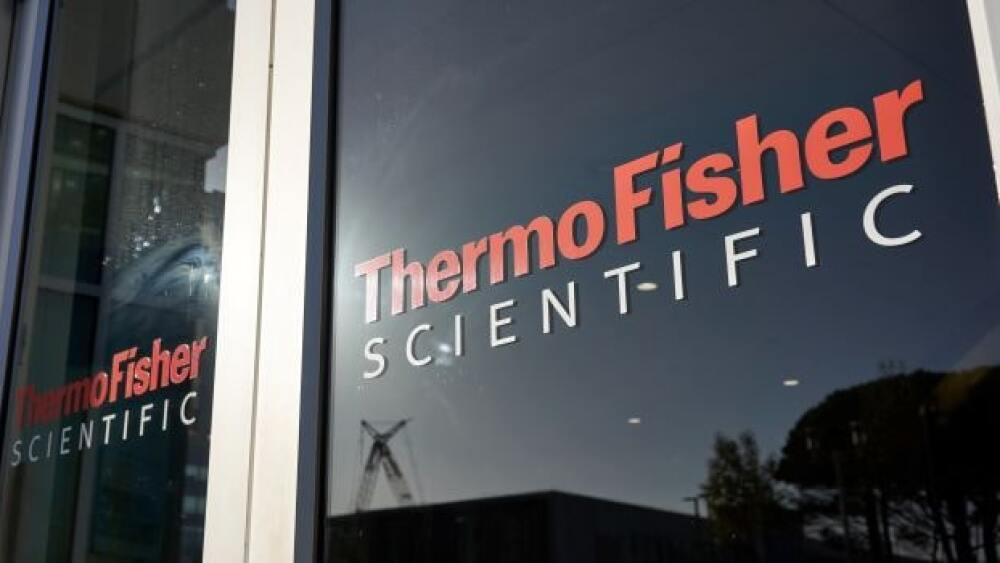Thermo Fisher Scientific continues to open new facilities that enable it to meet increasing manufacturing demands.
Tada Images/Shutterstock
Thermo Fisher Scientific continues to open new facilities that enable it to meet increasing manufacturing demands. This morning, the company announced a new cGMP plasmid DNA manufacturing facility in Carlsbad, Calif. that will enable it to meet demands for plasmid DNA-based therapies and vital mRNA-based vaccines.
Marc N. Casper, chairman, president and chief executive officer of Thermo Fisher Scientific, said the demands for commercial plasmid DNA have risen dramatically. Those demands are outpacing the existing supply of commercial plasmid DNA due to the accelerating development of gene therapies and vaccines across the globe, Casper said. That is why Thermo Fisher invested in the 67,000-square-foot facility located on the company’s Carlsbad, Calif. campus.
“Investments in state-of-the-art manufacturing such as this ensure that our customers have reliable access to the high-quality materials and capabilities that have become vital for the production of these new lifesaving medicines and the patients in need,” Casper said in a statement.
For Thermo Fisher, the Carlsbad-based facility is the latest new site the company has opened. Earlier this year, the company partnered with the University of California at San Francisco to open a state-of-the-art cell-based therapy manufacturing and development facility. When the site opens in 2022, it is expected to provide clinical and commercial cGMP cell therapy manufacturing services, along with associated technology development support, to UCSF and other partners. Earlier this week, Thermo Fisher partnered with the University of California at Davis to open the Center of Excellence in Clinical Metabolomics. The facility is expected to provide end-to-end metabolic profiling workflows, as well as advanced metabolomics strategies.
The Carlsbad site will allow Thermo Fisher’s customers to meet their plasmid DNA demands for cell therapies and vaccines as they move from discovery into the clinic. Plasmid DNA is often used as a therapeutic agent in gene therapies and the development of certain vaccines. The reason for the growing demand of plasmid DNA is its multiple advantages, including weak immunogenicity and ease of manufacturing.
When the Carlsbad site is fully operational, Thermo Fisher said it expects to add more than 150 manufacturing jobs.
Thermo Fisher Scientific was not the only company to announce new manufacturing capabilities. Lumen Bioscience announced an expansion of its biologics manufacturing capabilities in Seattle.
The new space is expected to provide the company with a significant expansion of its cGMP-grade production capabilities. Lumen said the expanded facility will allow the company to increase manufacturing of larger volumes of spirulina-based biologic drugs needed for Lumen Bio’s upcoming clinical trials.
The company is rehabbing a former bakery in Seattle. Construction is expected to begin within the next six months.
“This factory has safely produced food for decades, and it’s not a huge leap from making sourdough to spirulina-based drugs,” Craig Behnke, head of Production and Development at Lumen said in a statement. “We’re excited to usher in a new era for this building, which will allow us to meet the needs of multiple, large clinical trials scheduled to commence next year.”





